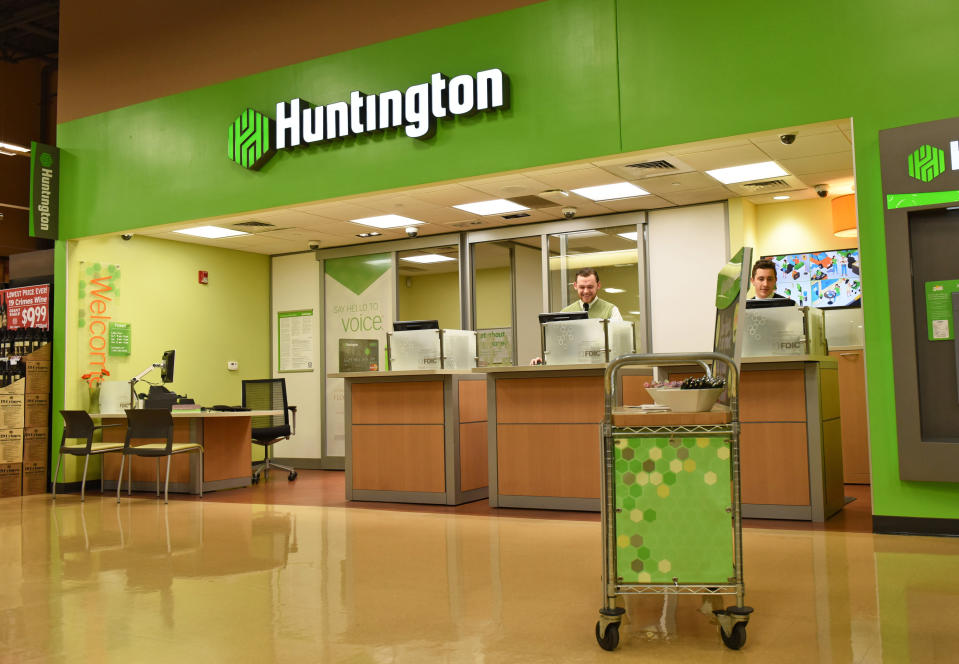Huntington's software bet aimed at transforming medical billing

Huntington Bancshares is making a $4.8 million bet on software it believes dramatically improves the coding of medical bills.
The artificial intelligence-powered solution, developed over five years by Veuu, a Tampa, Florida-based fintech, "gives us high [confidence] in that collateral pool," Dan Storer, senior managing director of corporate health care banking at the $189 billion-asset Huntington, said Friday in an interview. "It shortens the revenue cycle, which accelerates cash flow."
A more positive cash flow could lead to a far more robust level of financing options, Storer added. "We'll have a new state of things when we launch this," Storer said. "Because of the new fidelity, we're going to be able to create new structured products, which we haven't been able to use in health care. We're going to be able to make the traditional products like lines of credit and term-loan financing way better."
Huntington disclosed its equity investment in Veuu Thursday in a press release. It didn't say how much of the company it acquired.
Coding errors, Storer said, have long been a pain point for hospitals, health systems, doctor practices and outpatient surgery centers, the target market for Veuu's software, so much so that many patients routinely delay paying bills while insurance reimbursement is up in the air. Indeed, according to one study cited by Becker's Hospital Review, as many as 80% of medical bills contain at least one coding error.
"You never pay your first statement," Storer said. "You know there are going to be adjustments. It just stretches out the payment cycle."
The issue has affected the way Huntington and other banks approach health care lending. "We might give a line of credit to a really strong hospital, but we're really not taking their receivables. … There's just so much variability with the value of that asset," Storer said. To borrow against outstanding bills, health care providers have turned to nonbank lenders who typically charge higher rates, Storer added.
While it's still in the trial phase, Veuu's software has produced significant improvements in coding accuracy, Terence Mills, the fintech's CEO, said Friday. In one pool of claims initially processed by a participating hospital's in-house billing team, Veuu improved the accuracy rate from 61% to 92%, saving thousands of work hours, in the process.
The solution works by studying medical claims that were successfully paid. "We've found there's one way to measure accuracy in coding health care claims and that is specifically based on adjudication — did [the claim] get paid or not," Mills said. "It has nothing to do with fuzzy math. It's more about can we improve the number of claims that are otherwise coded improperly to code them correctly, and can we get them paid."
According to Mills, the problems with medical billing stem from language. Coding is derived from practitioners' diagnoses, "and all doctors [write] differently," Mills said. "One doctor can diagnose in three words. The next doctor comes along and the diagnosis could be buried in a paragraph of 25 words." Coders must then select the proper classifications from approximately 67,000 diagnosis codes to generate a bill.
"That's a problem for humans," Mills said. "It's also a problem for machines. The machine needs to be built in a particular way to be able to flesh out the important nature of what the doctor said."
A team of nearly 50 software engineers worked full time for nearly five years to develop Veuu's solution, Mills said. It's by no means the only one in the works. In February, CodaMetrix, a Boston-based fintech, received $55 million from venture capital investments to boost development of a rival AI-powered billing solution.
Huntington decided to invest in Veuu after viewing a presentation by Mills and his team at the bank's Columbus, Ohio, headquarters earlier this year. Storer, who has worked in health care banking since the early 1990s, remains confident it will prove game-changing.
"It changes the current state," Storer said. "This is going to be the new commercial paper market," Storer said. "We're going to be trading these receivables in the future. Banks trade receivables every day, that's very common, but nobody trades pools of medical receivables."
Huntington and Veuu expect to launch their medical billing solution in the first half of 2024.
